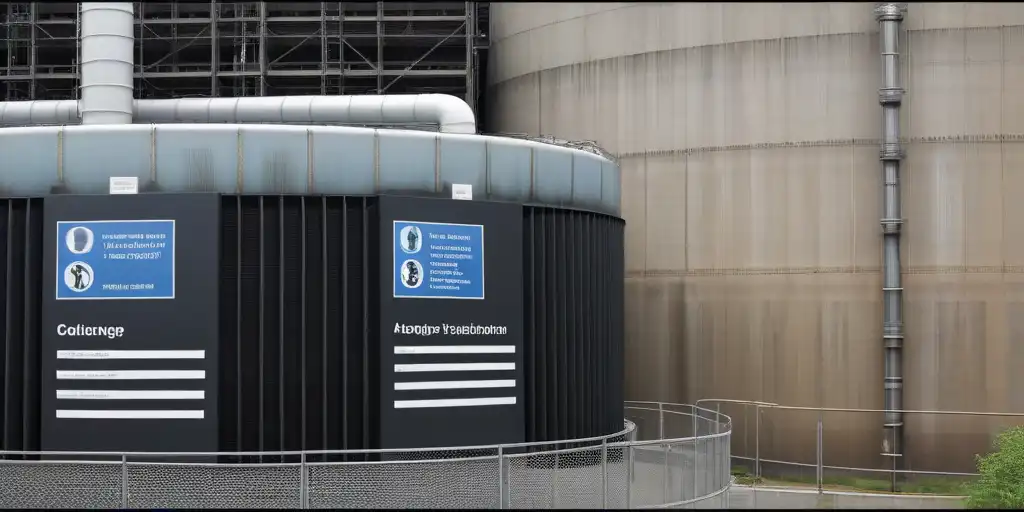Legionnaires’ Disease Outbreak in Lincoln: Health Officials Issue Urgent Warning

Stay Informed: Legionnaires’ Disease Alert in Downtown Lincoln, New Hampshire
New Hampshire health officials have recently issued a critical advisory regarding a potential health risk in downtown Lincoln. This alert comes after an outbreak of Legionnaires’ disease, which has raised concerns about the safety of certain areas within the town. This article aims to provide detailed information on the outbreak, the disease, and necessary precautions for the public.
Understanding the Outbreak
In June and July, five individuals were diagnosed with Legionnaires’ disease, a severe form of pneumonia caused by inhaling water droplets contaminated with Legionella bacteria. Health officials believe these individuals might have been exposed to contaminated water from a cooling tower located behind the Riverwalk Resort in downtown Lincoln.
Health Advisory and Ongoing Risks
The New Hampshire Department of Health and Human Services (HHS) issued an advisory on Monday, emphasizing that the cooling tower in question is still operational while remediation efforts are underway. Dr. Benjamin Chan, the state epidemiologist, explained the function of a cooling tower: “A cooling tower is used for air conditioning to cool the air down, but it uses a water source and fans blowing water into the air.”
What is Legionnaires’ Disease?
Legionnaires’ disease is a type of pneumonia caused by Legionella bacteria. The bacteria thrive in water systems, including cooling towers, hot tubs, and showers. When people inhale contaminated water droplets, they can develop the disease. Symptoms typically appear two to 14 days after exposure and include fever, cough, and shortness of breath. If left untreated, the disease can be fatal.
Symptoms and High-Risk Groups
Most people exposed to Legionella bacteria do not become ill. However, certain groups are at higher risk, including:
– Older adults
– Current or former smokers
– Individuals with weakened immune systems
– People with chronic lung disease or diabetes
Measures Taken and Ongoing Remediation
Renee Blood, Vice President of Riverwalk Resort, stated that initial remediation of the cooling tower began on Friday morning and was completed by Monday, Aug. 12. The process was carried out by Barclay Water Management Services. “After complete sanitation, the cooling tower was put back into full operation as discussed with the state. Out of an abundance of caution, additional testing will be performed later this week,” Blood said.
Dr. Chan emphasized the importance of keeping the cooling tower operational to conduct new tests and confirm that the contamination has been successfully eradicated.
Precautions for the Public
Health officials have advised anyone visiting the Main Street area to assess their health risks. While the majority exposed to Legionella bacteria do not fall ill, those with underlying health conditions should be particularly cautious. The highest risk of exposure is within a half-mile radius of the cooling tower.
Previous Outbreaks in New Hampshire
This recent outbreak is not unprecedented in New Hampshire. In 2023, a Massachusetts woman died after contracting Legionnaires’ disease while staying at the Mountain View Grand Resort. Between fall 2021 and January 2023, at least five people fell ill at the Meredith Woods and Clearwater Campground. However, that outbreak wasn’t investigated until two years after the first case.
In 2018, 34 people contracted the disease at Hampton Beach, with one fatality. A report linked those cases to the hot tub or potable water system at The Sands Resort.
FAQs About Legionnaires’ Disease
What is Legionnaires’ disease?
Legionnaires’ disease is a severe form of pneumonia caused by Legionella bacteria. The bacteria can contaminate water systems, such as cooling towers, hot tubs, and showers.
Who is at higher risk of contracting Legionnaires’ disease?
Older adults, current or former smokers, individuals with weakened immune systems, and those with chronic lung disease or diabetes are at higher risk.
How can I protect myself from Legionnaires’ disease?
Avoid areas with known contamination, especially if you fall into a high-risk category. Pay attention to health advisories and take necessary precautions if you are in an area with a reported outbreak.
What are the symptoms of Legionnaires’ disease?
Symptoms include fever, cough, and shortness of breath, typically appearing two to 14 days after exposure.
Can Legionnaires’ disease be fatal?
Yes, if left untreated, Legionnaires’ disease can be fatal. Early diagnosis and treatment are crucial.
How is Legionnaires’ disease treated?
The disease is typically treated with antibiotics. Early medical intervention is essential for a better prognosis.
Conclusion
The Legionnaires’ disease outbreak in downtown Lincoln serves as a reminder of the importance of vigilance and timely intervention in public health matters. While health officials and the Riverwalk Resort are taking steps to address the contamination, the public must remain cautious, especially those at higher risk. By staying informed and taking necessary precautions, we can mitigate the risks associated with this serious disease.
